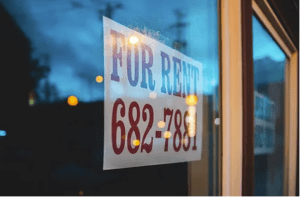
Costa Rica driving guide
Costa Rica Country Guide
Everything you need to know about moving to Costa Rica
Expats Guide to Driving in Costa Rica
For many, driving is essential for unlocking the beauty and adventure of Costa Rica. But there are a few things expats need to know.
Driving in Costa Rica can be an adventure filled with stunning landscapes and vibrant culture, but it’s essential for expats to be well-informed about the unique aspects of driving in this beautiful country. From understanding the licensing requirements to navigating the road conditions and local traffic rules, this guide offers essential insights to ensure expats drive confidently and legally in Costa Rica. Whether you’re a newcomer or a seasoned resident, knowing the ropes of driving in this enchanting land is a must.
Navigate page
Driving as a Tourist in Costa Rica
As a tourist in Costa Rica, you can use your valid home country driver’s license for the duration of your entry stamp. It’s essential to carry your passport or a copy of it, including the page with your entry stamp. While this offers flexibility, remember to abide by local traffic laws and regulations to ensure a smooth and lawful driving experience.
Driving as a Resident in Costa Rica
Obtaining a driver’s license as a resident in Costa Rica
If you plan to stay in Costa Rica for an extended period or are a permanent resident, you’ll need to apply for a local driver’s license. Tourists and legal residents can both apply, but if your foreign license is expired, you’ll need to take a road test. The process involves visiting Costa Rica’s Council for Road Safety (Cosevi), and the costs vary – the initial license is 4,000 CRC ($8), renewals are 10,000 CRC ($20), and replacements are 5,000 CRC ($10). You’ll need a medical exam, your current passport, residency cedula, or temporary residence permit, and a copy of your foreign driver’s license.
Homologating a foreign driver’s license
Homologation is the easiest way to obtain your Costa Rica driver’s license. It refers to validating your foreign license within the Costa Rican legal framework. This allows you to obtain a Costa Rican driver’s license without taking another driving test. The homologation process takes place at COSEVI offices and requires several documents, including your unexpired foreign driver’s license, cedula or residency card, passport with at least three months and one day in Costa Rica, medical exam results, and a translation of the license if it’s not in Spanish. The cost for this service is 5,000 CRC ($10).
Renewing a Costa Rican driver’s license
Renewing a Costa Rican driver’s license is a more straightforward process. You can do this at a COSEVI office or select Banco de Costa Rica locations, but foreign residents should use COSEVI. The renewal fee is based on your driving record, with discounts for fewer points and no infractions. The standard cost is 10,000 CRC (about $17), and you’ll need proof of payment, medical exam results, and an unexpired cedula or residency card. Special conditions apply to foreign residents.
First-time driver’s license and renewal
Obtaining your first-time driver’s license in Costa Rica involves multiple steps and is available to both tourists and legal residents. You’ll need specific documents, including your passport, residency cedula, or temporary residence permit, as well as your foreign driver’s license. A medical exam is required for both first-time licenses and renewals, and the fees are 4,000 CRC ($8) for first-time licenses and 10,000 CRC ($20) for renewals.
Replacement of lost or stolen driver’s license
If your driver’s license gets lost or stolen, you must follow a specific process. Provide a police report, residency cedula, or another form of identification that displays your photo and driver’s license number. The cost for replacement is 5,000 CRC ($10).
Things to Know About Driving in Costa Rica
- If you get into an accident, stop right there: It is technically illegal to move your car after getting into an accident. Although it might not always seem like the safe move, leave the car exactly where it is.
- Extra fees when renting a car: Third-party liability insurance is required when renting a car in Costa Rica. This fee is typically not quoted in online rental car prices. This charge can be up to an additional $25 per day.
- Use Waze: Neither Waze nor Google Maps are 100% reliable in Costa Rica. But because more Costa Ricans use Waze, it is typically better than Google Maps.
- Getting your license plates taken: When you’ve committed a parking violation, rather than getting a ticket, the officer will take your license plates. You’ll need to go to the county seat to pay the fine and get your plates back.
- Yielding on one-way bridges: When driving in more mountainous areas, you are likely to come to one-way bridges. One side of these bridges has a side which says, “Ceda.” This means that the side with the “Ceda” sign is supposed to yield to oncoming traffic.
- Gas station must-knows: At most gas stations in Costa Rica, attendants will pump your gas. They often will also clean your windshield, and can fill your tires with air upon request for no extra fee. No tips are required.
Not sure where to start?
Speak with an international relocation specialist for free
Helpful resources


U.S. Passport for a Child Born Abroad: Registering a Birth in Costa Rica with the U.S. Embassy

Costa Rica client reviews

We would highly recommend using StartAbroad for your relocation needs… [Their relocation] program is very comprehensive and they anticipated our every needs to make sure that our move went smoothly.
We would have made many mistakes on our own… [StartAbroad was] worth every penny and now looking back we can’t imagine having made this move without their assistance.
Clay & Sarah (& Sam)
Costa Rica Concierge Clients

It was an ultimate pleasure working with StartAboard, from start to finish they took care of every minor detail. Their service took loads of pressure off my hands as you can imagine all the small details and variables you have to consider when moving to a different country.
I would highly recommend StartAboard if you are looking to relocate.
Reggie W.
Costa Rica Concierge Client

[The team at] StartAbroad were absolutely fantastic… These guys saved our family so much time – it’s quite difficult to quantify the value of their service. One thing for sure, for the small amount that they charged us for facilitating our digital nomad visas – in comparison to the huge amount of time we saved, is substantial!
Very pleasant to work with, very professional, clearly they care very much about what they are doing and their work reflects this.
Mateo
Digital Nomad Visa Support
Join our mailing list
Receive monthly newsletters, special offers, insider information, and more.

